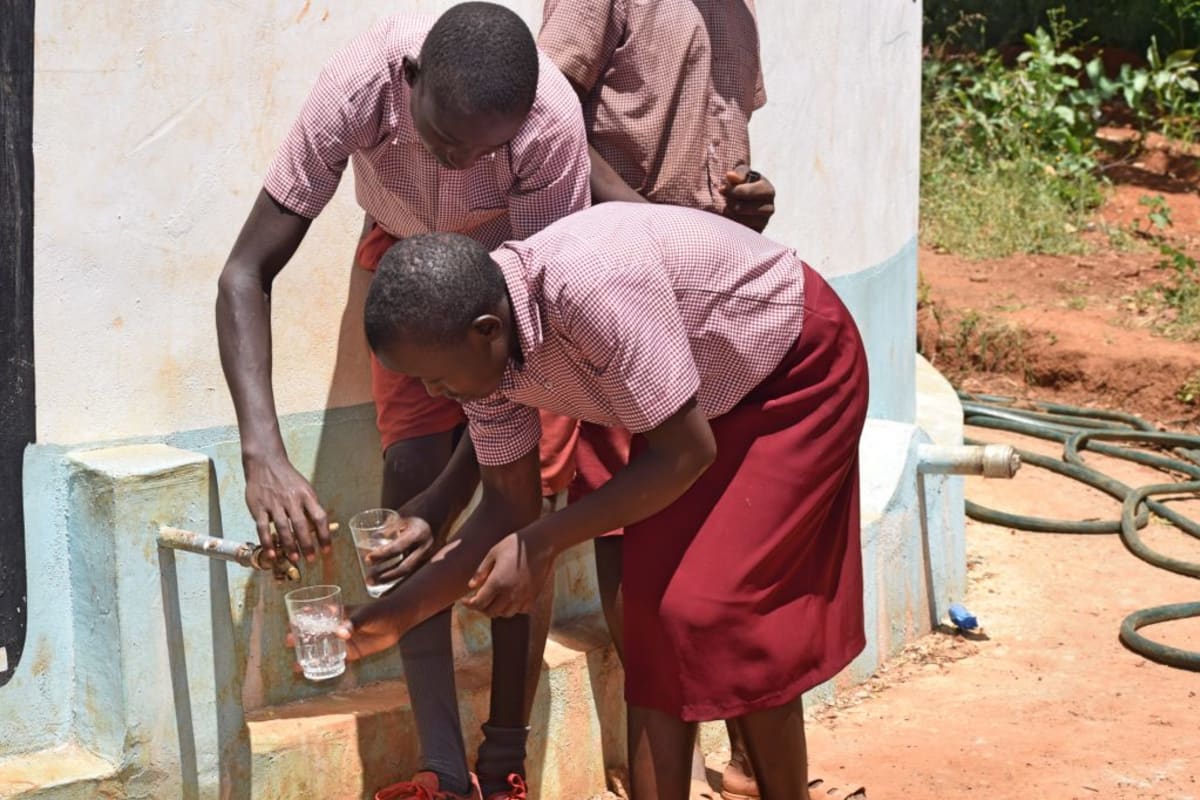Kako Special School for the Mentally Handicapped is a full boarding school serving 95 students. The school was started in 1999 as an initiative of parents who wanted to address the functional needs of children with disabilities in the larger Mbooni & Kaiti Constituencies and neighboring areas. The school was initially hosted within the Kako Primary School and later developed into an independent school in 2015. The school has predominantly grown through the parents' support, the Mbooni Constituency Development Fund, the government, and the Makueni county government.
The school currently depends on a small rainwater tank to meet its water needs. The primary water source for the school has not been providing enough water for the school population. Water from the available plastic tanks only lasts for 12 days because of the high water demands. The school then resorts to water purchases from water selling trucks from Wote town, which is expensive.
On an average day, the students wake up at 6:30 am and engage in morning cleaning and preparations before breakfast at 7:30 am. Morning assembly takes place at 7:50 am, and classes begin at 8:10 am, running until 3:10 pm. Every day in the evening and the morning, the students line up at the available tanks to collect water for their basic needs, such as washing and taking their showers.
"The water we get while in school is not enough. We are only provided with 5 liters of water in the evening," said Kelvin, a school student.
"Sometimes we have had meals delayed after water was unavailable to aid in the cooking, and the classes have to be halted because of that."
Buying water has been expensive for the poorly funded school. Since most of the school parents live in poverty, they are unable to provide significant financial backing to run the school smoothly. The school latrines are poorly cleaned because of inadequate water availability leading to a poor hygiene state within the school.
Rain Tank
We will build a 104,000-liter rain tank for this school, making the others look tiny in comparison. Because of how rarely it rains in Southeastern Kenya, this tank's large volume is designed to store as much water as possible during the seasonal rains, making more water available through the dry months. This water will benefit the students, teachers, and additional staff.
Parents will mobilize the materials needed for construction, including sand, stones, and water. They will also lend their strength and time to help with the building. We will complement their materials with a skilled artisan to lead the project and provide the tools, lumber, metal, cement, and gutter system.
As soon as the tank has time to cure, it can begin collecting rainwater for the school's use.
Training
We will train students and staff on sanitation, hygiene, and other topics for one day. Those in attendance will form a school health club that will promote good hygiene and sanitation practices at school and home. They will learn all of the steps to proper handwashing, how to treat water, and how to keep their environment clean. The school will also be taught how to oversee best and maintain their new rain tank and handwashing stations.
Handwashing Stations
A total of 3 handwashing stations will be installed upon the project’s completion and before training. These are 1,000-liter plastic tanks fitted with three taps each, allowing nine students to wash their hands at once. The student health club and school management will be responsible for making sure the tanks are filled with water and that a cleaning agent such as soap or ash is always available.



 Rehabilitation Project
Rehabilitation Project

























